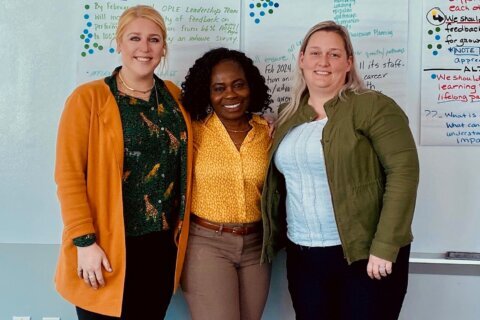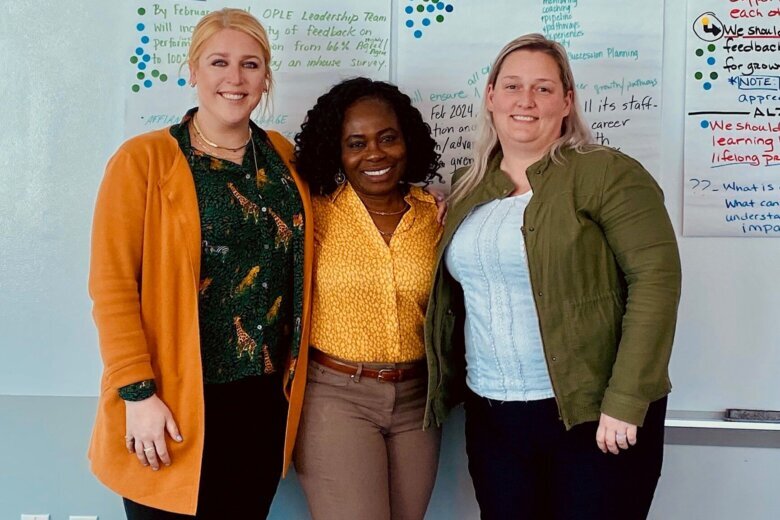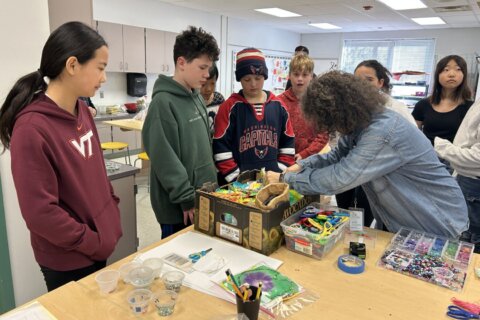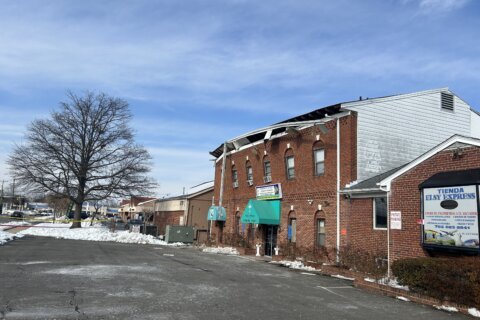
It took a while for Fairfax County Public Schools in Virginia to hire for its new neurodiversity specialist position, according to Nina Thomas, the school system’s coordinator of professional learning and cultural responsiveness.
But when Kristen Haynor was selected for what she characterized as her dream job, it was clear the county “found our unicorn,” Thomas said.
Haynor, the school system said, may be the first neurodiversity specialist to work in a U.S. K-12 public school setting. She joined the Equity and Cultural Responsiveness team in May 2022, and works to support students who have autism, ADHD or generalized anxiety disorder, and other traits that would traditionally be considered limitations to academic achievement.
Haynor is one of three recent school system hires aimed at supporting students who learn differently. The county also hired a dyslexia pecialist and 2E specialist, who works with academically gifted students who also meet state or federal eligibility criteria to have a disability or multiple disabilities.
Thomas described Haynor as “the most shining, brightest star that we could find.”
“There’s no right or wrong way, since this hasn’t been done yet,” Haynor said of how she approaches her role. “It looks different every day. I could be supporting a professional development with staff one day; I’m working with a group of students the next day; talking with our transportation system the next day.”
Haynor has a team of eight specialists, also on the equity team, that works closely with her, Thomas said. While she works to support neurodivergent students, Haynor said there’s not currently a way to identify the number of neurodivergent students in Fairfax County. However, she said the National Institutes of Health recently reported roughly one in five people have at least one form of neurodivergence.
In addition to supporting staff and students, Haynor said she’s also working to discuss the cultural and mindset shifts that are needed to take place, because, “I don’t think that we’re in a place yet where the diversity of thinking is yet able to be celebrated due to a lot of constructs that are currently in place and restrictions. Yet, if you think about some of (the) most-celebrated thinkers of our time, whether historical or contemporary, they’re likely neurodivergent.”
Part of her approach, she said, is looking at “how can we position ourselves as the detective and not the judge, asking ourselves the why behind the behavior — what’s being communicated?”
Meanwhile, in January, the school system hired Nonye Oladimeji as a Twice Exceptional Educational Specialist. About 5% of the school system’s gifted population identified as 2E, meaning they have a 504 or Individualized Education Plan, she said.
Oladimeji visits schools, collects data and offers training to teachers. One of her main jobs, though, is finding out how to begin working collaboratively, “to identify the students, because their abilities and disabilities sometimes, most times, are masking, which makes it difficult for people to even identify their strengths or their disability,” she said.
The term 2E, she said, has been around for about 15 years.
“We’re not fixing people,” she said. “Our job is not to fix people or change the identity of who they are. Our job is to meet them where they are, build on their strengths.”
Rachel Rubio was hired to serve as the school system’s new Dyslexia Specialist, a job dedicated to the reading and writing disability.
School Board Chairwoman Rachna Sizemore Heizer played a key role in creating Haynor and Oladimeji’s positions, the school system said.
“It’s a collaborative effort, meaning all key stakeholders’ voices (are) equally important. But the most important key stakeholders are the students, so we need to listen to them,” Oladimeji said. “We need to hear their voices. We need to also go back and check on them.”









